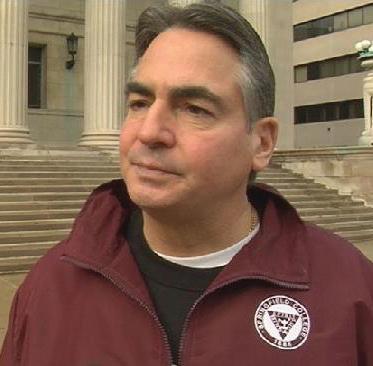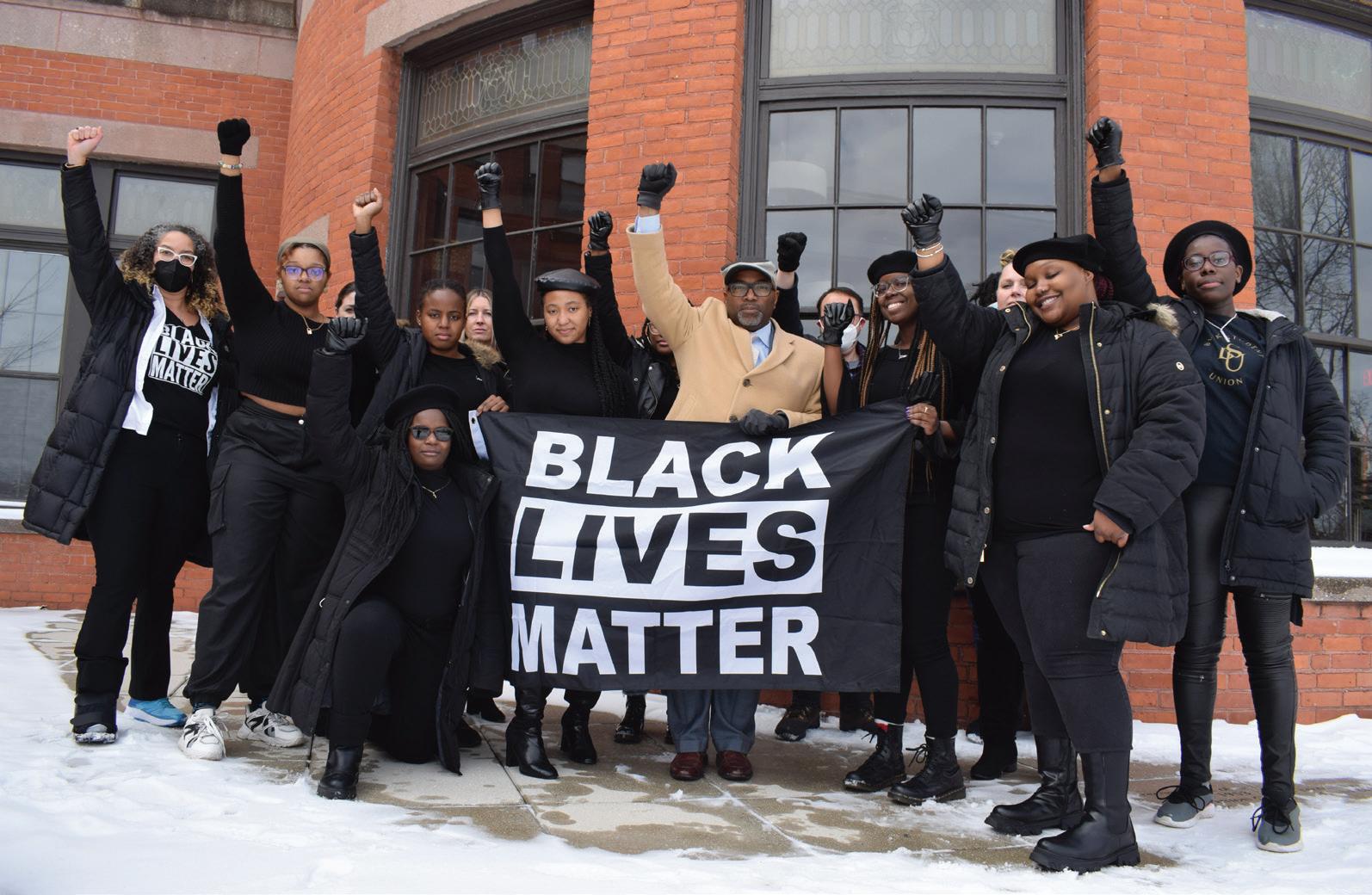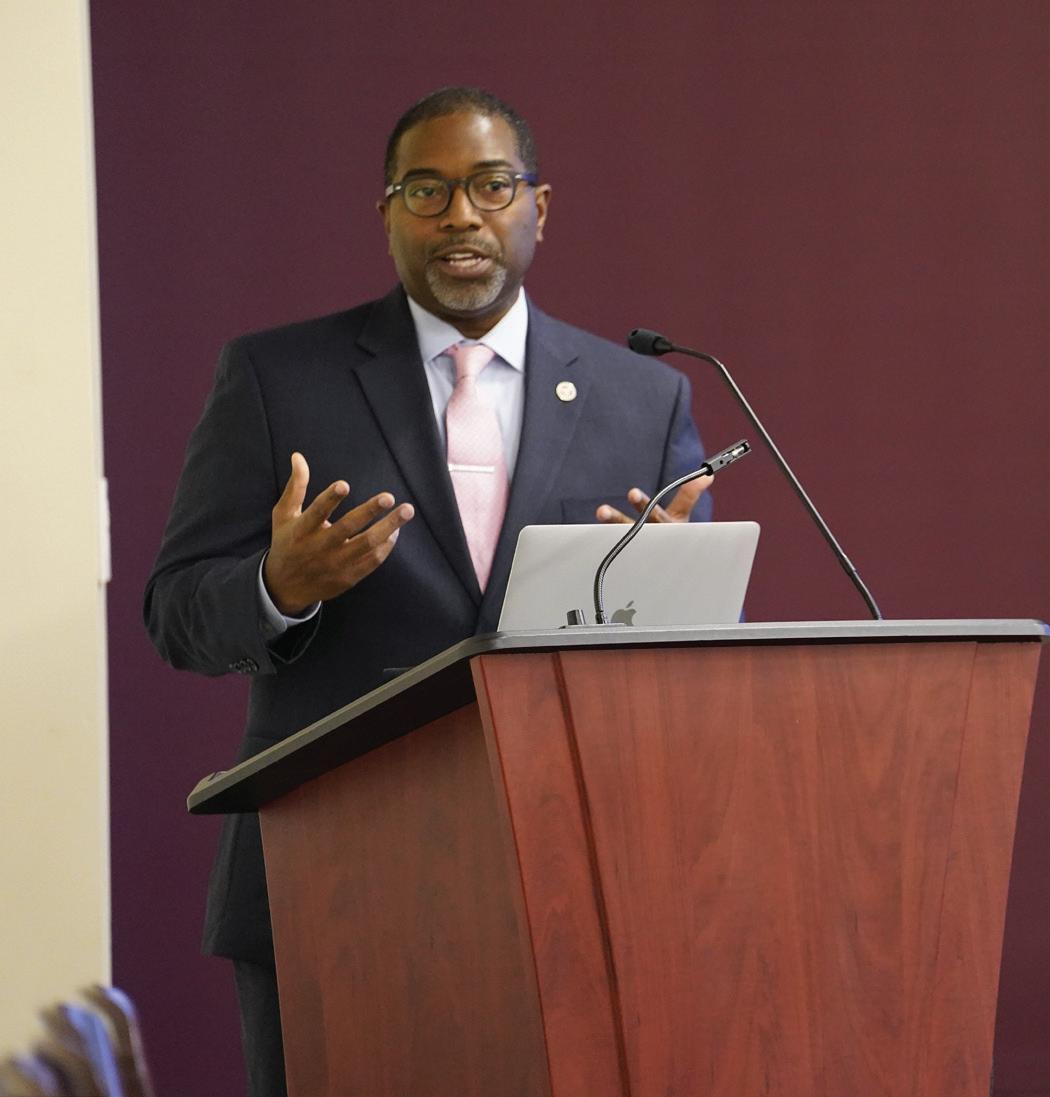
8 minute read
Students react to potential COVID changes
February 24, 2022 Campus News
Masks... off?
Advertisement
Springfield College students react to the College’s proposed mask policy, which states that masks only need to be worn in academic buildings. It is expected to go into effect when the city reevaluates its policy on March 1.
_ By Garrett Cote _ @garrett_cote
It has felt like an eternity since March 2020, despite it being only two years. Since that time, the entire world experienced a global lockdown; there were protests and marches flooding streets across America in response to the murder of George Floyd, forests were rapidly decimated and destroyed by wildfires, and a seemingly infinite amount of unjust violence gripped each and every person as tight as a vice.
With draining negative headlines filling newsstands and televisions over the past 23 and a half months, it’s hard to believe something positive is even possible.
But, on Feb. 17, Springfield College announced in an email that students who are fully vaccinated would likely no longer be required to wear masks in the majority of on-campus buildings starting March 1, depending on the City’s updated
Mayor of Springfield Domenic Sarno is exptected to lift indoor mask mandates March 1. Once his final decision is made, the College will follow suit. (Photo Courtesy 22News WWLP)
guidelines. The only places masks will still be needed are in academic buildings, including the Learning Commons.
Finally, something positive.
“I heard about it from one of my friends. They said the school was going to be sending out an email about no masks, but I didn’t believe him at first,” said Springfield junior Jason Earle.
“Just the way things have been going with the school being strict about guidelines, I didn’t think they would do this, at least not this year. But when I finally got the email, I was like, ‘Wow, this is a really big step.’ This is the first time in like two years we will be in buildings without a mask on.”
The steps being taken, no matter how big or small, are vitally important to those on Alden Street. They have adhered to every rule and guideline the College has input. Although the decision may seem overdue to some students, it doesn’t take away the pure joy of seeing the full faces of the Springfield College community.
“I thought this was long overdue, to be completely honest,” said Springfield College junior Daevin Brazeal.
“Since this year started, I felt like we were doing pretty well with the COVID stuff. We were required to be vaccinated and get the booster, so I thought that was going to change some of the mandates, but it didn’t. I’m definitely happy they made the decision to finally change the guidelines. I’m excited to see everyone’s face again.”
A man of the people
Calvin Hill, Vice President for Inclusion and Community Engagement at Springfield College, continues to push for a more diverse campus community.
__ By Cait Kemp __ @caitlinkemp09
With an intonation to his voice that commands a room, contrasted with his pleasant and kind-hearted disposition, Dr. Calvin Hill has been a natural leader his entire life. Hill used this voice to bring awareness about the inequality and lack of diversity he saw within his own college programs.
Hill originally hails from Texas and attended a small, private university in Kansas for his undergraduate degree. At Bethany College, he experienced a similar campus population to the one at Springfield College. It was a predominantly white institution and he noticed the lack of resources like programs and offices that should exist to connect with the minority students.
This sparked his interest in diversity and inclusion. From there, Hill became involved in the diversity groups that did exist on campus, and worked to advocate for the BIPOC population.
“I noticed on campus that there were not a lot of resources to support the small number of BIPOC students; specifically, the small number of Black students,” said Hill. “So I became a very active student, I was president of our Black Student Union, I was very active in terms of student government and I was an ambassador.”
Hill’s first job after earning his undergraduate degree was as an admissions counselor at a small school in Kansas, where he quickly became responsible for multicultural recruiting. It was not a part of the job description, but was assumed that he would take on that role because of his

Calvin Hill (center) at the Black Student Union Black History Month celebration. (Photo Courtesy of Springfield College)
own race.
While recruiting, it was difficult to advertise the institution in a positive way, knowing that once these BIPOC students arrived there were little to no resources to support them.
Throughout his time in his graduate program at Emporia State University in Kansas, Hill continued to be involved with groups on campus. He was learning more about other marginalized groups like the disabled population, BIPOC students, first generation students, international students, LGBTQ+ individuals, and women in terms of STEM and traditionally male dominated fields.
“My perspective in terms of marginalization has just continued to increase, and since then I have had different opportunities to lead similar offices,” said Hill.
After completing his graduate program in Student Personnel Administration at Emporia State, Hill decided to go for his PhD. He was encouraged by a mentor to gain a different perspective and attend Howard University, a predominantly black institution. He
was able to learn history and politics through a Black lens, something that unfortunately isn’t often taught in traditional classes.
He held several other positions between 2001 and 2015 in administration diversity offices at Anna Maria College, Worcester Polytechnic Institute, Massachusetts General Hospital, Worcester State University and University of St. Thomas. He then became the Vice President for Inclusion and Community Engagement at Springfield College in July of 2015.
His experiences at both predominantly white and Black universities allowed him to have a full outlook on how people act and learn at a young adult age, and gave him an opportunity to make an impact.
During his time at Springfield he has worked to create stronger connections between the College and the city of Springfield, bring awareness of diversity issues to the community and has made a strong effort to increase recruitment of BIPOC students and faculty.
As the close of Black History Month approaches, Hill believes that the recognition of the month should have an impact on the students. It’s not just about Black students celebrating their heritage, but about informing white students about the history that is not as well known.
“You go back and think about the foundings of Negro History Week, Carter G. Wilson wanted Black people specifically to have a sense of pride and have a sense of resilience in themselves and where they came from as a people,” said Hill. “As we look at our mission of leadership and service to others, that’s important for us to understand it’s not just enough to have Black people have a sense of their own history, but we all need to have a sense of history.”
Wilson founded Negro History Week in 1926, which has since to a month-long acknowledgement and celebration of Black history and the important accomplishments that may go unrecognized otherwise.
It is important for everyone to acknowledge each others’ histories so all students can appreciate and understand how this country came to be and the importance of diversity in America.
Hill noted the importance of knowledge on the Springfield campus, acknowledging its interesting history in social movements for equality. The 1969 and 1970 building takeovers and student-made list of demands sparked activism during the Civil Rights Movement. Springfield College saw a burst of activism again recently in 2020 with the March on Alden Street, and a new list of demands to the President during the Black Lives Matter movement.
It’s easy to think these types of issues are past us, but racism is as present as ever -- just not in the same ways as it used to be seen. Students may not see as much outward violence, but microaggressions are common in everyday conversation. The only way to change that is through perception and awareness.
Through many events held on campus throughout February, students had ample opportunity to step out of their comfort zone and learn something new.
“That’s that positive opportunity for our students to engage, so that white students and marginalized students aren’t just sitting there going, ‘Well, I have no idea why the Black students are frustrated or upset,’ well, here’s your opportunity to understand,” said Hill.
Hill noted three main points that should be taken from events and programming around BIPOC appreciation. Everyone should be able to understand each other’s backgrounds, there should be an increase of knowledge across campus population, and a better world view will help all to open up to new experiences that they may have to face in their life.
In a prestigious position at the College, Hill has big responsibilities. However, he acknowledges that much of his work is long term, and will take time to accomplish.
“My goal would be for every student, faculty and staff member across campus to engage in diverse cross-cultural dialogues. Really challenging themselves to understand someone that is different from themselves,” said Hill.
Hill has big goals, but they are reachable as long as everyone buys into the vision and does the work to move towards a more inclusive and diverse campus. If everyone puts in the effort to do their part, the dreams can become a reality.

Calvin Hill speaking at the Diversity and Inclusion Conversation Series in Nov. 2021. (Photo courtesy of Springfield College)



